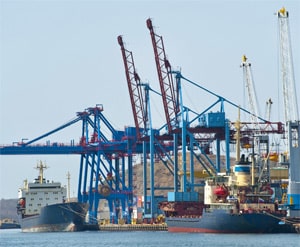MILESTONES: RUSSIA
By Kim Iskyan
While attention in December was mostly focused on the evolving political environment in Russia, a major economic milestone was achieved on December 16, when the World Trade Organization formally accepted the country as a member.
 |
|
Open for business: WTO entry heralds new era of trade for Russia |
Sometime in the spring, following ratification by the Russian parliament and the president, Russia—the largest outstanding economy—will finally be admitted as a full member of the WTO, ending a tumultuous 18-year application process.
Membership will have little immediate impact on the Russian economy, though, as most of the anticipated changes and benefits will unfold only over the long term. As a member of the WTO, Russia will be both pressured and incentivized to tackle long-delayed economic reforms and to provide an improved regulatory and legal framework for investors, both foreign and domestic. Companies in some sectors will have to become more efficient and customer-oriented as they face heightened foreign competition. In particular, Russia’s agriculture and domestic manufacturing sectors—most notably automobiles—will see tough competition from abroad. But the oil and gas sector, by far the most important industry in Russia, is not subject to the WTO.
The advantages for Russia are the prospect of additional trade and economic growth—the World Bank forecasts that Russia may experience incremental GDP growth of 1%-3% per annum—and reduced investor perception of risk. This should decrease asset valuation discounts assigned to many Russian assets and open up the country to a broader spectrum of investors.
US firms will be limited in their ability to benefit from Russia’s accession to the WTO, however. Cold War-era legislation relating to Soviet immigration policies prevents the US from granting Russia permanent normal trade relations (PNTR). Consequently, the US will not recognize Russia’s WTO status (and vice versa) until Congress ratifies PNTR status, which is unlikely to happen before the 2012 lame-duck session of Congress.



